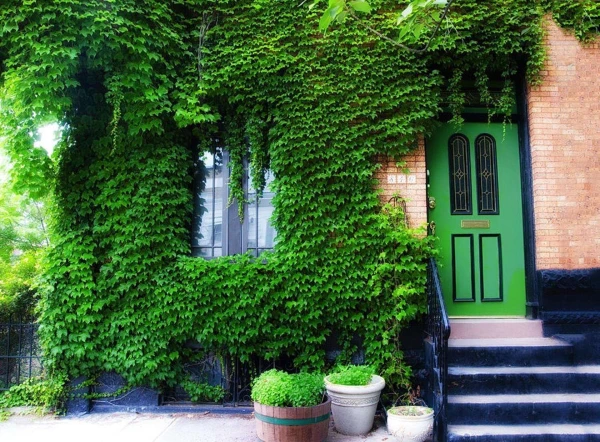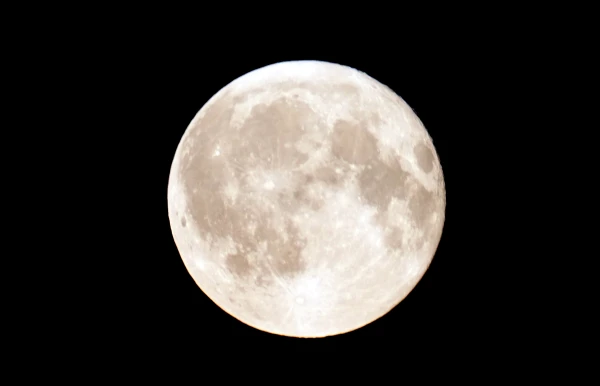
Common ivy or bamboo can destroy your walls and drainage. Experts advise which plants to avoid.
Real estate experts warn: some common garden plants that seem safe can actually cause significant damage to homes and infrastructure. They destroy foundations, drainage systems, cause cracks in walls, and even lower property values. This was reported by the publication Express.
Kevin Barzegara, a real estate specialist at Kaybridge Residential, stated that ignoring problematic plants can cost homeowners a pretty penny, while timely removal of such plants is a significantly cheaper solution.
"I have seen properties lose thousands in value due to problematic plants. What starts as a harmless garden feature can turn into a nightmare, the repair of which is costly and deters potential buyers," noted Barzegara.
Barzegara named four of the most common plants that should not remain in your garden and explained why they pose a threat.
English Ivy
At first glance, ivy looks decorative; however, its microscopic roots penetrate the mortar between bricks and stones, expanding as they grow. This causes cracks, crumbling, and gradual destruction of walls.
Moreover, the dense foliage retains moisture near the facade, creating ideal conditions for mold development and can become a refuge for insects. Removing ivy without damaging the wall is not easy — simply pulling it out only exacerbates the situation.
Alternative: Instead, experts recommend planting flowering climbing plants, such as clematis or climbing roses. It is better to place them on trellises away from the walls of the house.
Bamboo
Bamboo is often used to create hedges or privacy screens; however, its roots are among the most aggressive of all plants. They spread quickly underground, often several meters from the planting site.
"I have seen bamboo roots spread several meters from where it was planted. They break through paving, damage structures, and can crack foundations," Barzegara said.
The problem is that bamboo is nearly impossible to eradicate completely — new shoots can sprout even from tiny fragments of the rhizome.
Alternative: Ornamental grasses, such as miscanthus, or tall but safe perennials that do not have an invasive root system.
Japanese Knotweed
This invasive plant is known for its ability to grow extremely quickly — up to 10 centimeters a day. Its powerful roots easily break through asphalt, stone, brick, and concrete. Therefore, knotweed can damage roads, foundations, and walls of houses.
"Japanese knotweed can make your property practically unsellable. I have seen it cause a collapse in sales and a significant drop in property values," the specialist warned.
In the UK, the spread of Japanese knotweed is regulated by the Wildlife and Countryside Act of 1981. It is illegal to plant or allow it to spread to neighboring properties — in such cases, the owner may face civil lawsuits and significant financial costs for removal.
Treating knotweed can take years and cost between £900 and £20,000, depending on the area affected.
Alternative: For creating a dense hedge or decorative fencing, it is better to choose photinia or laurel.
Willow
Although willows are considered beautiful trees, they should not be planted near buildings. Their roots actively seek water sources and can penetrate sewage systems, damaging pipes and causing blockages.
"Willow roots can extend up to three times the height of the tree. Roots of a 10-meter tall willow can spread 30 meters, easily reaching underground pipes," Barzegara explained.
This can cause soil deformation, pipe cracks, lifting of tiles, and settling of foundations. Alternative: Plant willows at least 40 meters away from structures or choose less aggressive trees — such as Japanese maples.
Barzegara concluded that timely prevention is the best strategy for homeowners and gardeners.
"If you already have any of these in your garden, the sooner you take action, the better. Removing them at an early stage is much cheaper and easier than dealing with structural damage in the future," the expert noted.
He also advises carefully inspecting the property when buying a home. The presence of Japanese knotweed or bamboo should be a serious warning sign for potential buyers.
"Don’t hesitate to ask questions or undergo specialized inspections if you are concerned. It could save you thousands," Barzegara added.













